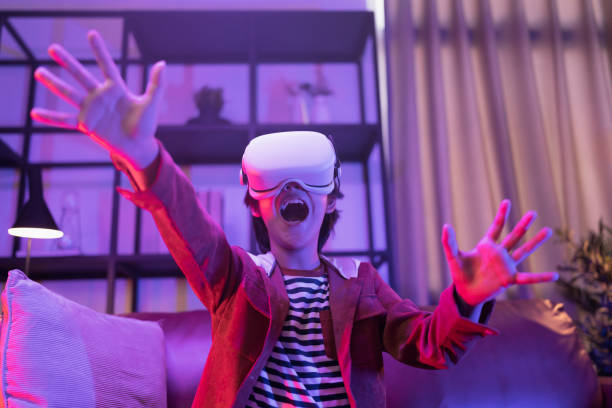Unveiling the Influence of Virtual Reality on Social Interactions
Our society has always been shaped by technology, and the rise of virtual reality (VR) is no exception. With the potential to revolutionize the way we communicate and interact, VR is reshaping our societal landscape. Read below to see how this digital frontier is impacting our real-world social structures.

Tracing the Emergence of Virtual Reality
Virtual Reality traces its roots back to the 1960s with the creation of the Sensorama, an immersive multi-sensory machine. Over the decades, the technology evolved, and the 21st century saw the emergence of accessible VR devices for mass consumers. As VR technology became more refined and immersive, so too did its potential impact on society.
The Societal Shift towards Virtual Spaces
Today, our society is witnessing a significant shift towards virtual spaces. People are spending increasing amounts of time in digital worlds, engaging in activities ranging from gaming to virtual meetings. This shift is altering our social fabric, changing the way we interact and communicate.
The Implications of VR on Social Interactions
VR’s most profound impact lies in its ability to create immersive, shared experiences irrespective of physical boundaries. This has significant implications for social interaction, presenting both opportunities and challenges. On the one hand, VR can foster connection, allowing people to interact across vast distances. However, it also raises concerns about the potential loss of face-to-face interaction and the implications for social skills and emotional connection.
The Role of VR in Shaping Modern Society
The influence of VR extends beyond communication; it is also shaping societal norms and behaviors. As we interact in virtual spaces, new forms of etiquette and social norms are emerging. VR is also promoting empathy by enabling people to experience different perspectives, thereby potentially reducing social biases.
The Future of Social Interactions in the Virtual Realm
As VR continues to evolve, its influence on society will undoubtedly continue to grow. While the technology presents exciting possibilities, it is essential to navigate this digital frontier with care. As we redefine the boundaries of social interaction in the virtual realm, we must ensure that we preserve the core tenets of human connection.
In conclusion, the rise of virtual reality is set to reshape our social landscape significantly. As we continue to explore this digital frontier, it is crucial to consider the societal implications and navigate this shift with care. The future of VR holds immense potential, but its impact on society is a topic that warrants close attention and thoughtful discussion.




